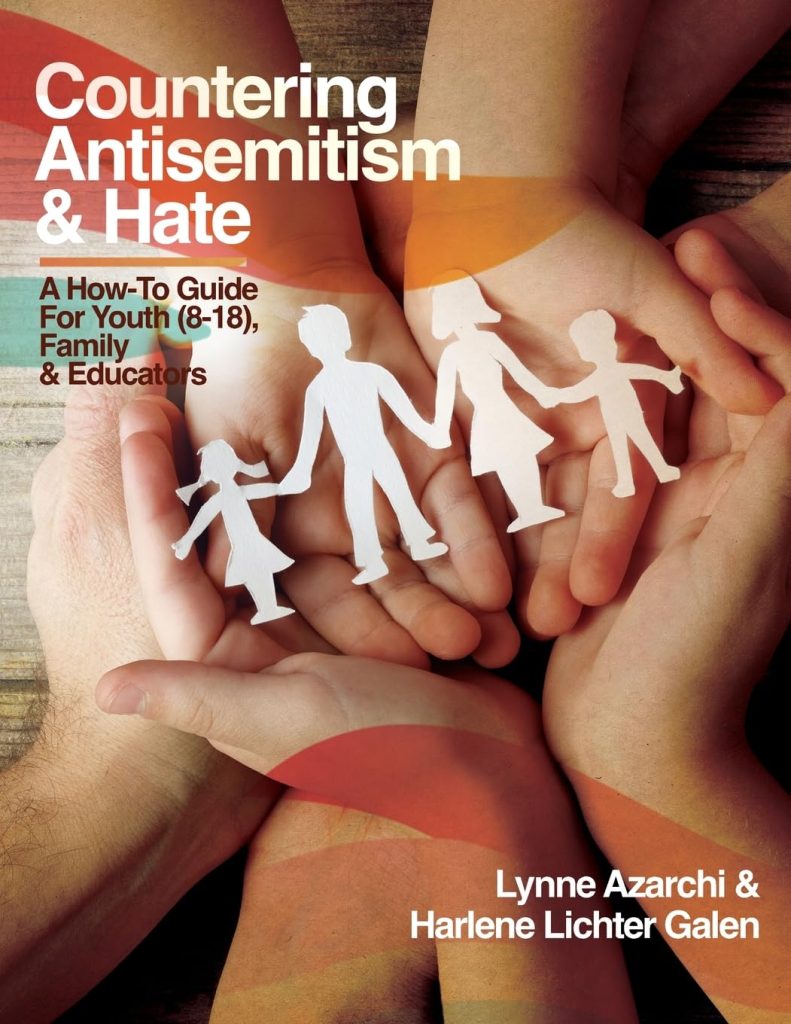How to Help Our Kids
When Jewish children and teens face antisemitism, what do they do? Mostly nothing. Unprepared, without practiced strategies or tactics for responding, they remain victims and targets. Compounding the problem, most Jewish children are afraid to share these bias incidents with their teachers or parents—even in the face of safety issues!
“The world will not be destroyed by those who do evil, but by those who watch and do nothing.”
—Albert Einstein
In some instances, Jewish parents have coached their children not to draw attention to themselves or make a fuss. This strategy allows the perpetrators and bullies to flourish. Many Jewish people have inherited the culture of conflict avoidance, which is a hallmark of a bystander society. Addressing conflict is stressful, so both adults and youth look the other way. However, harm still lurks. Conflicts don’t disappear.
Adults wish they had the courage to jump in and tell haters, name-callers, and bullies that their rhetoric and vitriol are unacceptable. They admit that our children need to be better prepared for antisemitism. They urgently feel that when our youth encounter a safety issue, they need to tell an adult who is equipped to help them.
Take heart! Inaction is not the parents’ and educators’ fault.
Why? They aren’t knowledgeable about how to handle antisemitism. However, with this Guidebook, families can turn from problems to discovering research-informed, developmentally appropriate, and evidence-based solutions, strategies, and tactics for Jewish youth.
Tips for Becoming an Effective T.E.A.M. Leader
We approach the T.E.A.M. leader starting line with different strengths, motivations, and emotions to reduce antisemitism. The following tips can boost you to success regardless of your starting point. Just remember to do them!
Tip 1 — Start with YOURSELF! Your answers to the following questions are critical.
- So that I am able to be thoroughly present, do I know and will I use techniques to calm myself before each T.E.A.M. meeting? (If your answer is no, for calming techniques, see Guidebook to learn some.)
- Acknowledging that slow and steady makes learning easier, do I have the commitment to aspire to a 15–20-minute T.E.A.M. meeting each week?
- Internalizing that sometimes T.E.A.M. members need hours, days, or weeks to process information, can I avoid criticizing myself if the meeting does not go as I expected?
Tip 2 — Schedule regular T.E.A.M. meetings — Make meetings a regular occurrence, not just when antisemitic incidents happen. Many activities in the Guidebook can be accomplished during one meeting.
Tip 3 — Use only Active Listening; hear another’s words with deliberate intention by always following active listening’s four key elements:
- Pay face-to-face full attention to the speaker, making sure to avoid distractions, thoughts of your “to do” list, sights and sounds in the environment.
- Show that you are listening by open body language; nods or a smile; short verbal comments, such as “yes”, “a-ha”, “mmmm”, “That sounds interesting.” Also, notice the speaker’s body language.
- Restate in your own words what the speakers have said to enable speakers’ checking that you understood their feelings and thoughts.
- Defer judgment. Be empathetic, nonjudgmental, consider what’s said from the speaker’s perspective.
MORE TIPS IN COUNTERING ANTISEMITISM & HATE GUIDEBOOK
A Guidebook With Solutions
We need to prepare our children, ‘tweens and teens early and consistently for the challenges they face from antisemitism, bullying and other bias.
